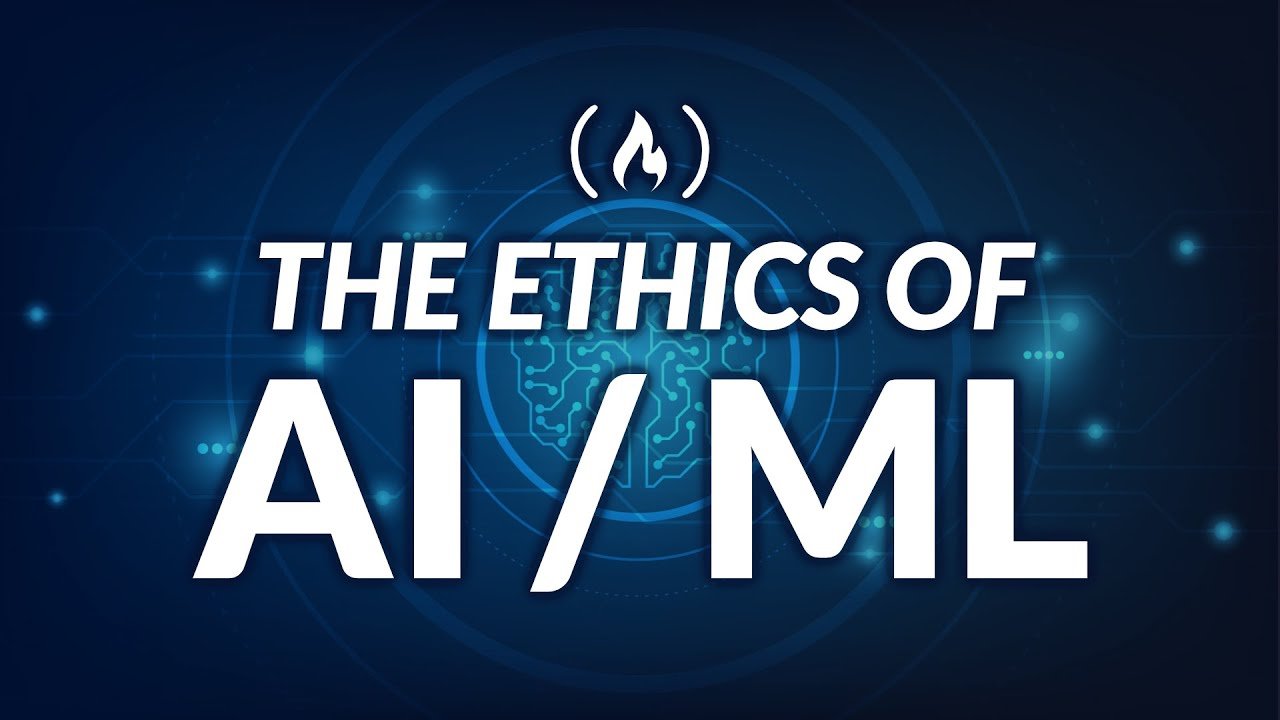Ethics in AI and ML

Navigating the Ethical Landscape: Principles and Practices in AI and ML
Introduction:
Welcome to the essential exploration of Ethics in Artificial Intelligence (AI) and Machine Learning (ML). In our comprehensive course, “Ethics in AI and ML,” we delve into the critical considerations surrounding the development, deployment, and impact of intelligent technologies. Whether you’re a technologist, policymaker, or concerned citizen, this course serves as your guide to understanding the ethical dimensions of AI and ML and navigating the responsible and fair use of these powerful tools.
Why Ethics in AI and ML?
As AI and ML applications become more prevalent, ethical considerations play a pivotal role in ensuring these technologies benefit society responsibly and equitably. This course addresses the ethical challenges inherent in AI and ML development, emphasizing the importance of transparency, accountability, and fairness in fostering trust among users and stakeholders.
What to Expect:
- Foundations of Ethical AI and ML: Explore the ethical principles that underpin responsible development and deployment of AI and ML systems. Understand the importance of transparency, accountability, fairness, and privacy in ethical frameworks.
- Bias and Fairness: Dive into the nuanced discussion surrounding bias in AI and ML algorithms. Examine real-world examples, understand the sources of bias, and explore strategies to mitigate bias and promote fairness in machine learning models.
- Privacy Protection: Uncover the ethical considerations related to privacy in AI and ML applications. Explore best practices for handling sensitive data, informed consent, and the ethical implications of data collection and surveillance.
- Explainability and Accountability: Understand the significance of explainability in AI and ML systems. Explore the ethical responsibility of developers to create models that can be understood and interpreted, and discuss accountability mechanisms for unintended consequences.
- Algorithmic Decision-Making: Delve into the ethical challenges associated with algorithmic decision-making. Discuss the implications of using AI and ML in critical areas such as hiring, finance, and criminal justice, and explore strategies for ensuring ethical decision-making.
- Global Perspectives and Cultural Considerations: Navigate the global landscape of AI ethics. Examine cultural nuances and ethical considerations that may vary across regions, and explore how diverse perspectives contribute to the development of responsible AI and ML.
Who Can Benefit:
- AI and ML Developers
- Data Scientists and Engineers
- Policymakers and Regulators
- Business Leaders and Decision Makers
- Advocates for Responsible AI Use
Conclusion:
The “Ethics in AI and ML” course is your gateway to understanding and addressing the ethical dimensions of intelligent technologies. Whether you’re actively involved in AI development or simply interested in the responsible use of these technologies, this course provides the knowledge and tools needed to navigate the complex ethical landscape. Join us in fostering a future where AI and ML contribute positively to society while upholding ethical principles. Welcome to a world where innovation meets responsibility!
